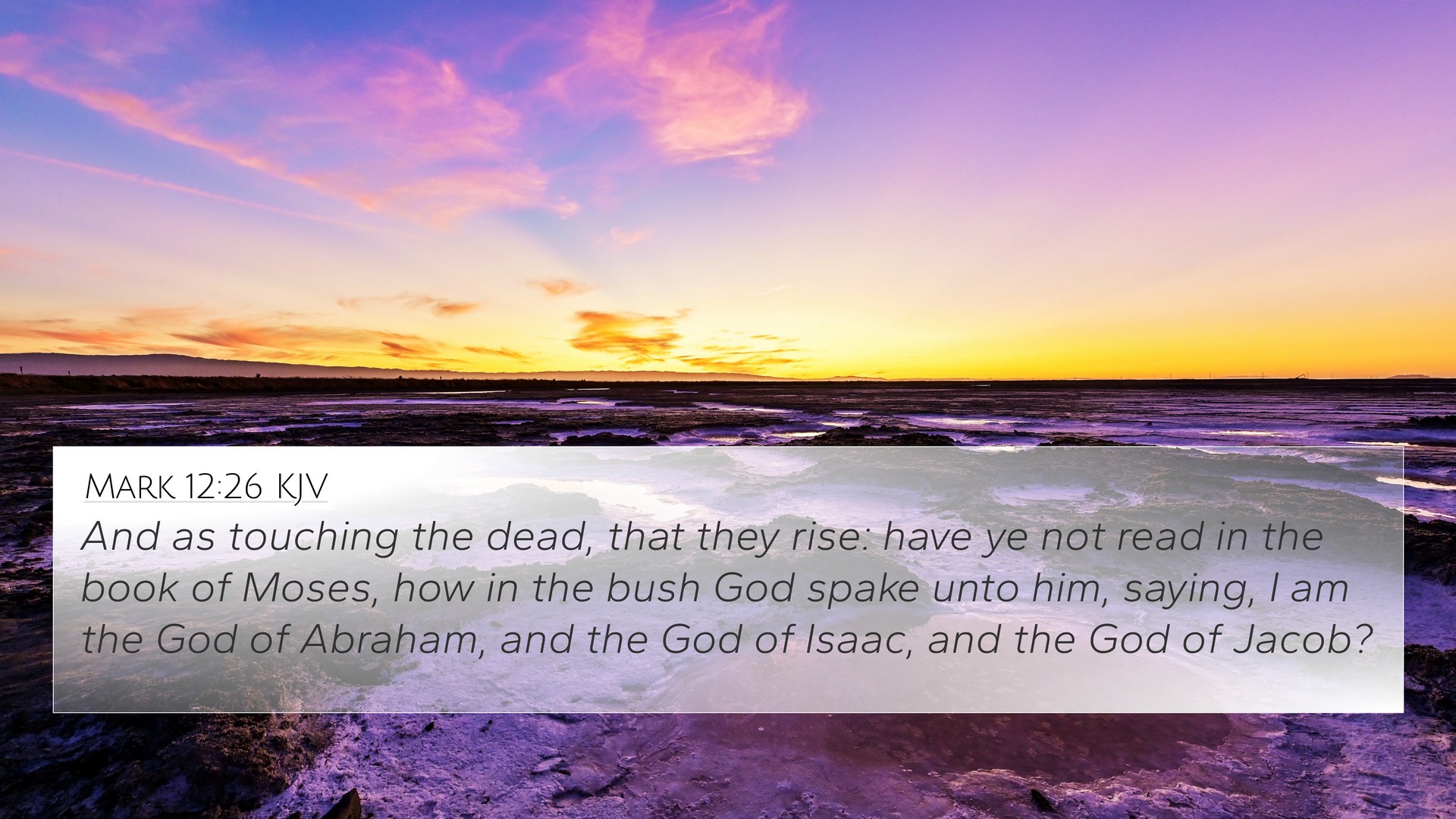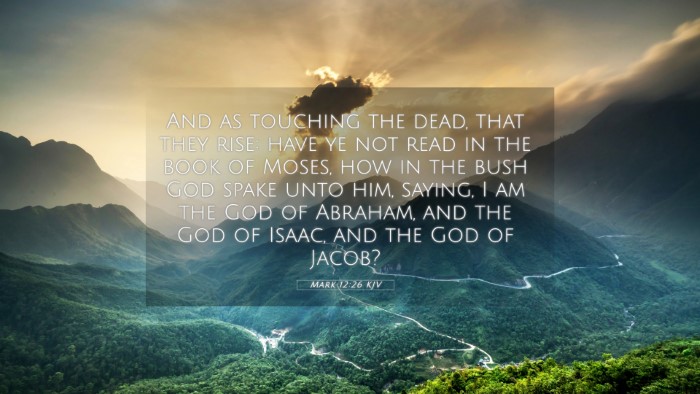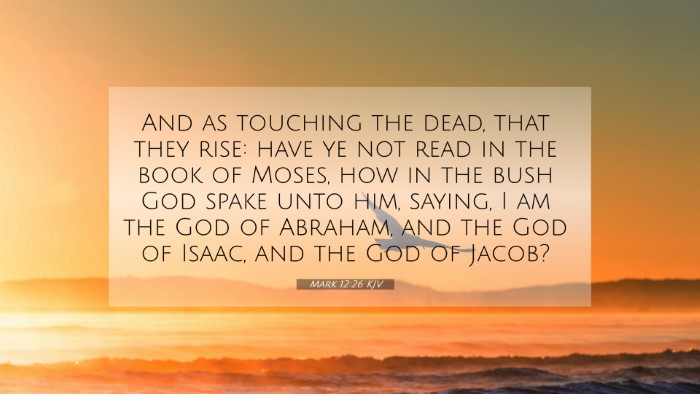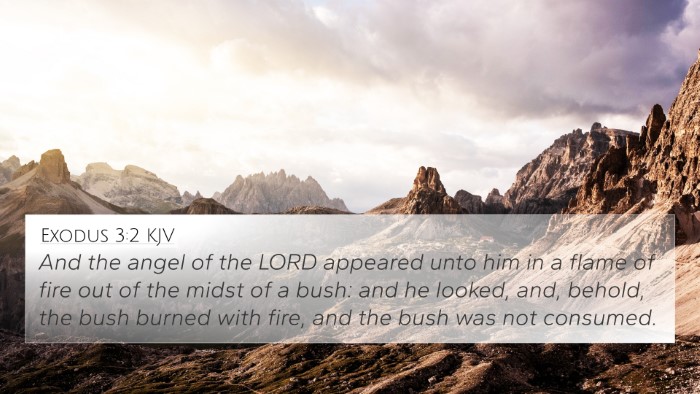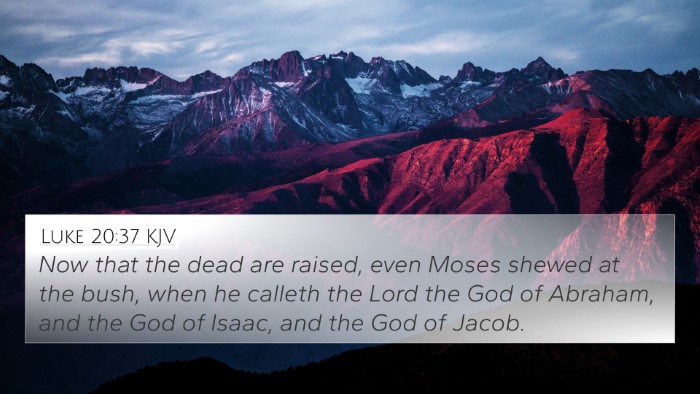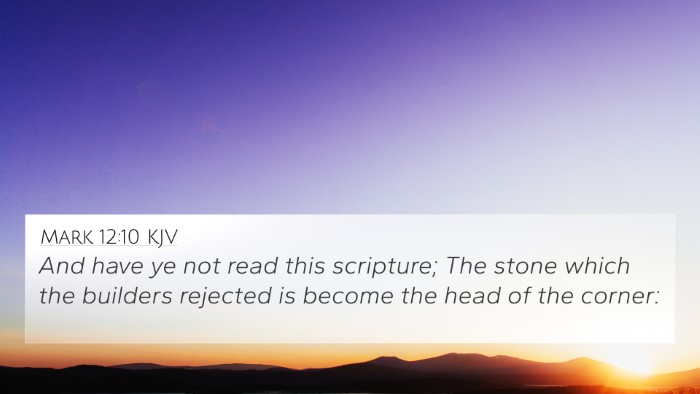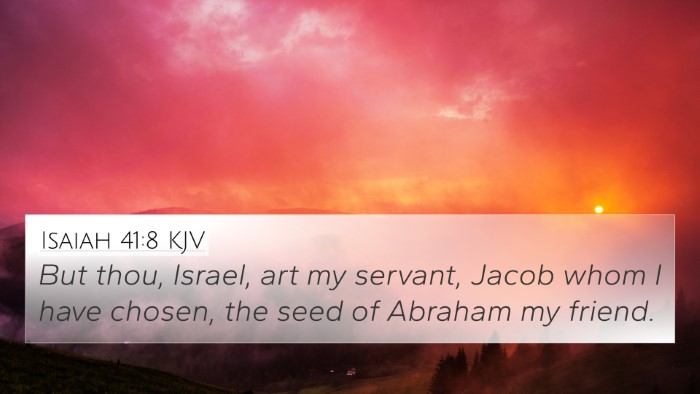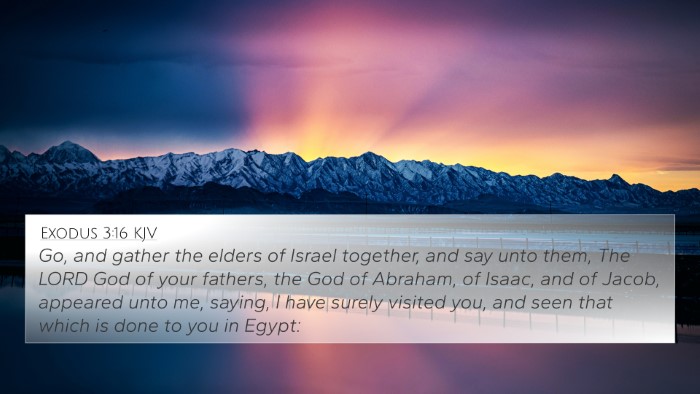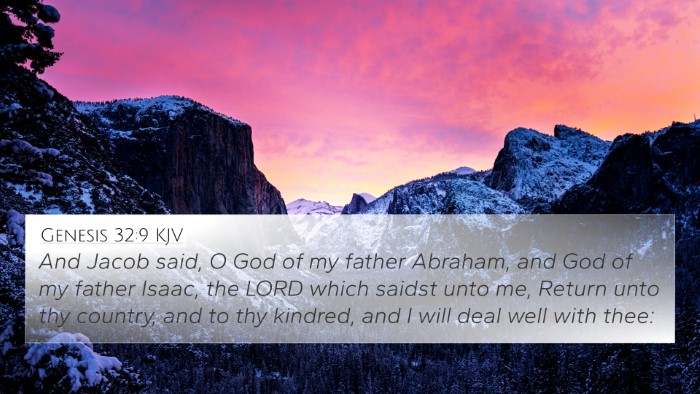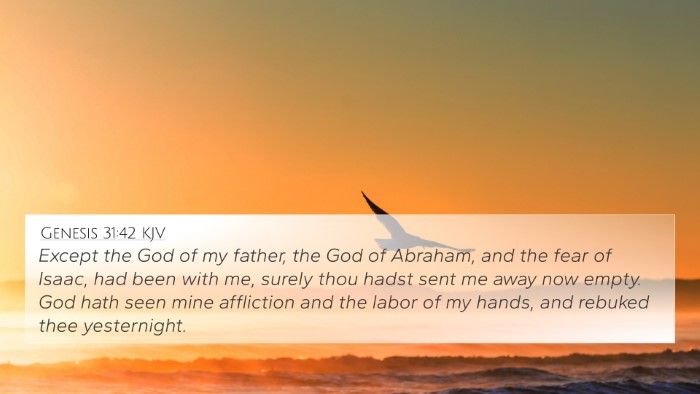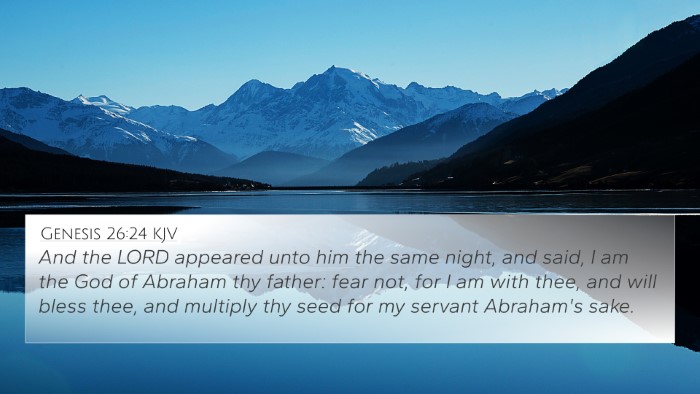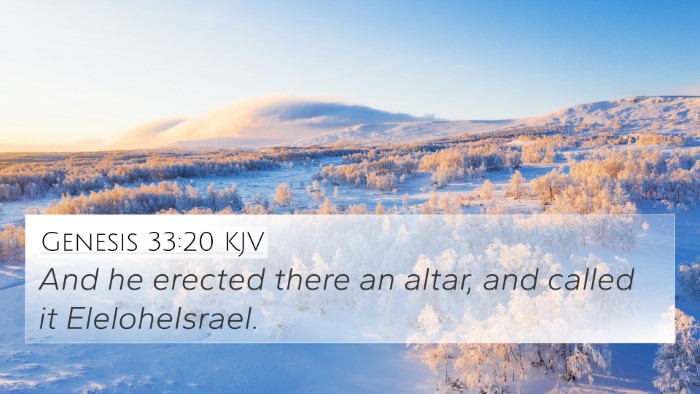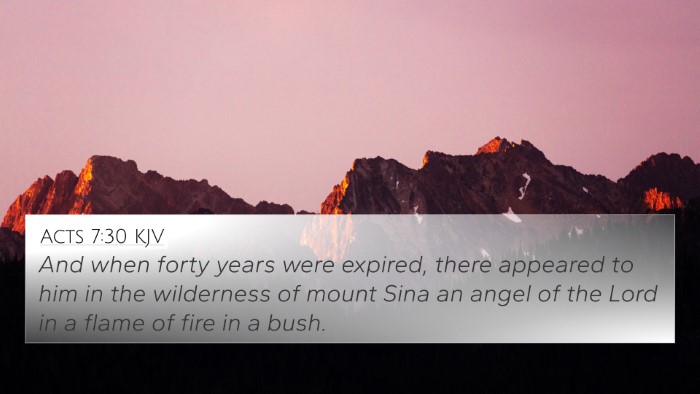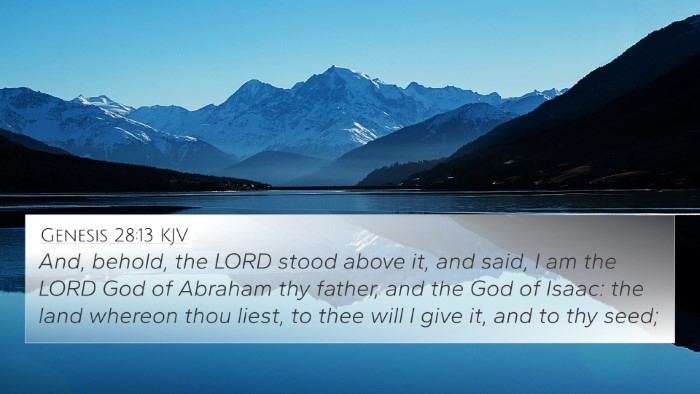Understanding Mark 12:26
The verse Mark 12:26 states: "And as for the dead being raised, have you not read in the book of Moses, in the passage about the bush, how God spoke to him, saying, ‘I am the God of Abraham, and the God of Isaac, and the God of Jacob’?”
Summary of the Verse
This scripture reflects Jesus' argument regarding the resurrection of the dead, emphasizing the nature of God as a God of the living, not the dead. By citing the conversation with Moses at the burning bush, Jesus highlights the ongoing existence of Abraham, Isaac, and Jacob, indicating that their relationship with God continues beyond physical death.
Commentary Insights
- Matthew Henry's Commentary:
Henry emphasizes that Jesus’s reference to the burning bush signifies God's declaration of continuous relationship with the patriarchs. He points out that God is not merely a historical figure but is actively present with His people across generations, thus affirming their living status in God’s eyes.
- Albert Barnes' Notes:
Barnes discusses the importance of this reference as a rebuttal to the Sadducees, who denied the resurrection. He highlights the theological implication that God's promise of life is extended even to those who have physically died, underscoring the eternal nature of existence in communion with God.
- Adam Clarke's Commentary:
Clarke elaborates on the significance of the phrase "I am." He notes that the present tense used by God signifies a living relationship, which serves to affirm the resurrection belief. Clarke also connects the scripture with the broader narrative of God's relationship with His chosen people.
Bible Verse Cross-References
Mark 12:26 connects to several key scriptures that illustrate themes of resurrection and the nature of God:
- Exodus 3:6: "I am the God of your father, the God of Abraham, the God of Isaac, and the God of Jacob."
- Matthew 22:32: "I am the God of the dead, but of the living."
- Luke 20:38: "For he is not a God of the dead, but of the living, for all live to him."
- Hebrews 11:16: "But as it is, they desire a better country, that is, a heavenly one..."
- John 11:25-26: "Jesus said to her, 'I am the resurrection and the life...'"
- 1 Corinthians 15:20: "But in fact Christ has been raised from the dead, the firstfruits of those who have fallen asleep."
- Romans 6:4: "We were buried therefore with him by baptism into death, in order that, just as Christ was raised from the dead..."
- Philippians 3:21: "Who will transform our lowly body to be like his glorious body..."
- Revelation 20:6: "Blessed and holy is the one who shares in the first resurrection..."
- Isaiah 26:19: "Your dead shall live; their bodies shall rise..."
Thematic Bible Verse Connections
Understanding Mark 12:26 allows for a deeper exploration of the connections between various themes present in the Bible:
-
Resurrection: The assurance of life after death is a recurring theme throughout both the Old and New Testaments, linking Mark 12:26 to John 11:25 and Romans 6:4.
-
God’s Nature: The revelation of God as a present, living God connects Abraham, Isaac, and Jacob's narratives through Exodus 3:6 and Matthew 22:32.
-
Eternal Life: The promise of eternal life extends across the scriptures, with implications found in Hebrews 11:16 and Revelation 20:6.
Tools for Bible Cross-Referencing
Utilizing Bible cross-referencing tools can enhance understanding and provide richer interpretations of verses like Mark 12:26:
- Bible Concordance: An index of scriptural references, helping locate parallel verses.
- Bible Cross-Reference Guide: Offers structured links to related verses.
- Cross-Reference Bible Study Methods: Techniques to study inter-relational verses effectively.
- Bible Reference Resources: Comprehensive tools for understanding thematic and narrative connections.
Conclusion
Mark 12:26 serves not only as a pivotal verse for understanding the resurrection doctrine but also exemplifies how inter-Biblical dialogue enhances biblical literacy. By cross-referencing related verses, believers can gain insight into God's promise of life and His enduring relationship with humanity.
